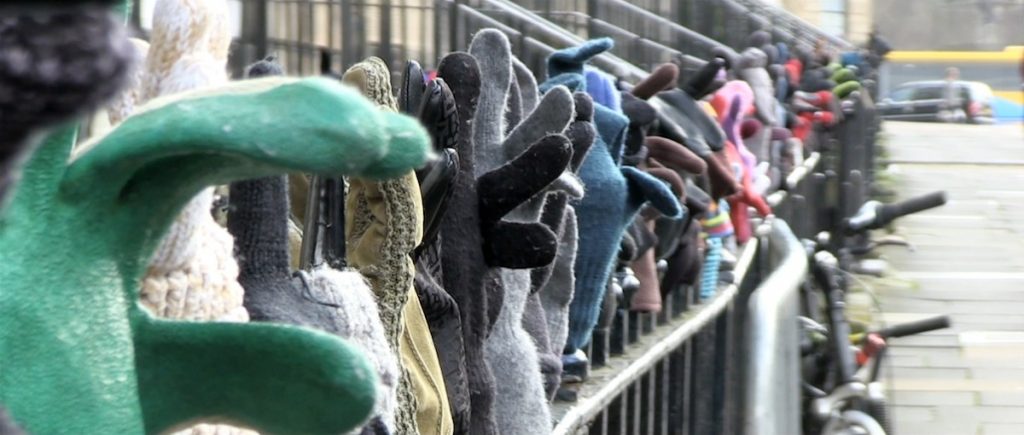En Tierra Extraña



Young, well-educated, often with several university degrees in their pockets, but no prospect of a job in their own field – the economic crisis in Spain, the resulting unemployment and precarious working conditions have led 700,000 Spaniards to try their luck in other countries. Of these, 20,000 are in the Scottish capital Edinburgh alone. But even there they are neither lost nor silenced: in an art action, a group of activists draws attention to their situation and expresses their anger.
The migrated Spaniards in En tierra Extraña initially find their first jobs primarily in lower-paid and precarious fields of work. The biologist works in a Chinese restaurant, the teacher in a clothing store, the chemist as a chambermaid. What unites them all is the bitterness of not being able to survive in the country that educated them, the unsettling question “What did I do to deserve this?” after years of labor-intensive study.
They are all driven by melancholy in the face of the loved ones left behind in their home country, but also by the hopeful experience of being more welcome, more appreciated and more promoted as a worker in the titular ‘foreign country’ than in Spain: “I feel more respected here as a store assistant than in Spain as a teacher,” sums up one of the film’s protagonists as she is interviewed in a simple room against the backdrop of the ever-brightly lit, majestic Edinburgh Castle. It is one of the most striking images in En tierra extraña, subtly suggesting a tension between ‘below’ and ‘above’, ‘poor’ and ‘rich’, ‘captivity’ and ‘freedom’.
In order to draw attention to the situation of Spaniards in Scotland, but also to give voice to the stories of other like-minded people, some of them, including the trained teacher Gloria Egea Cañabate, have created the project “Ni perdidos no callados / Neither lost nor silenced”. In social networks, they use the symbol of the lost glove to describe the feeling of many migrants*:
“Do you feel like a lost glove missing your ‘better half’ when you think about your country? We do. Like a glove whose other half has been snatched from us because we left behind our homes, our friends, our family, our lives.”
The collective channels the anger of many Spaniards towards their government, which denies the precarious work situation of young graduates in their country of origin and justifies the flight of the young population with a pure desire for adventure.
Statement
“What touched me most in the accounts of people who are abroad is their enormous longing for our country and, at the same time, their deep disappointment that the country they long for so much does not offer them a chance or a future.”
Icíar Bollaín
*1967, Madrid, Spain. Multiple award-winning actress, film director and screenwriter, member of the Academia Española de Cinematografía. En tierra extraña is Bollaín’s first documentary film.
Credits
DIRECTOR lcíar Bollaín
PRODUCTION Tormenta Films, Turanga Films y TVE
PRODUCERS Cristina Zumarraga, lcíar Bollaín y Lina Badenes
BOOK lcíar Bollaín
MUSIC Pascal Gaigne
COUNTRY Spanien und Schweden
LENGTH 72min


